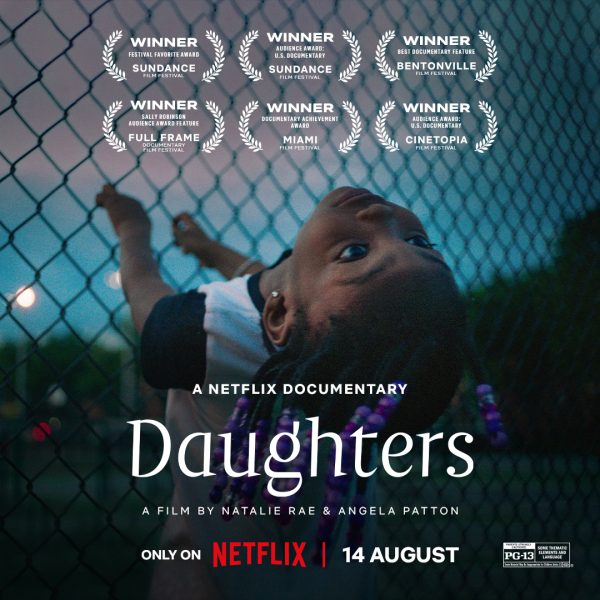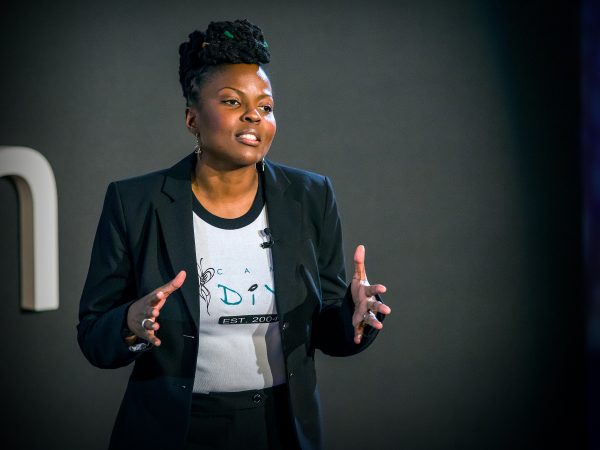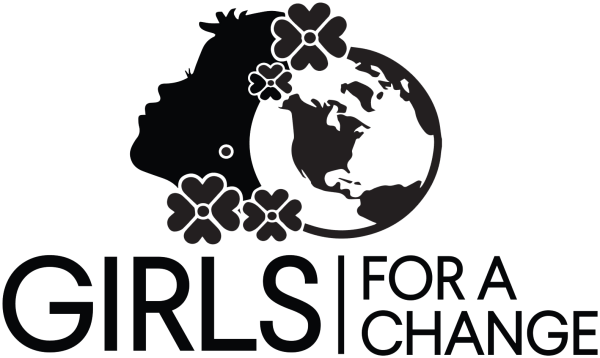If you need some storytelling inspiration, look to Angela Patton. In March, I was facilitating a virtual storytelling training for 159 nonprofit leaders across the country including Patton’s organization, Girls For A Change (GFAC). To prepare, I pulled on my proverbial headlamp and mined each organization’s website for great stories or great storytelling opportunities. When I got to GFAC, I struck gold.
 On the front page of their site is a poster for Daughters, an award-winning documentary co-directed by Patton, which tells the stories of four girls participating in GFAC’s program, Date With Dad. I decided to watch a few minutes of it for research, but I couldn’t turn it off.
On the front page of their site is a poster for Daughters, an award-winning documentary co-directed by Patton, which tells the stories of four girls participating in GFAC’s program, Date With Dad. I decided to watch a few minutes of it for research, but I couldn’t turn it off.
As phenomenal as this film is (put it at the top of your list!), I didn’t think that I could go into a training and tell 158 other organizations, “You should all make Netflix documentaries using the power of dramatic narrative. It’s easy!” Ummm… no.
While Daughters was her directorial debut, Patton has been putting storytelling to work for over a decade. In her 2012 TedTalk she shared stories that would become part of the documentary. In it, she creates vivid moments that connect deeply to the hearts and imaginations of the audience. During that training last month, I showed a clip of Patton’s TedTalk and asked her to share how storytelling has played a role in her work.
I was spellbound by her response, so I asked her if she’d be willing to share her experiences in this month’s newsletter.
Kirsten: What role does human-centered storytelling play in your work?
Angela: Storytelling is at the heart of everything we do. At Girls For A Change, our guiding principles are: Tell Compelling Stories, Inspire Real Action, Dream of Black Excellence, and Dial up the Fun. Our mission is simple: “Prepare Black girls for the world, and the world for Black girls.” We center Black girls in community and co-create stories with them, always following their lead. It’s about amplifying their voices and ensuring their stories are shared on their terms. I also share my own lived experiences, and together, we learn, grow, and heal from each other’s stories. The world deserves to hear the stories they feel ready to share.
Kirsten: How has telling this kind of story changed you, your work, or your audiences?
Angela: Filmmaking is just one form of storytelling, but it has given us the opportunity to bring Black girls’ truths to a broader audience. We are opening doors into rooms where these conversations were often missing. We’ve seen audiences deeply moved, with people sending letters, making donations, and offering support because they saw themselves in the girls’ stories. This work resonates with so many because it’s rooted in family healing and love—universal emotions that connect us all, regardless of background.
Kirsten: I have seen your TedTalk, Daughters, and the videos on your website. Are there other ways you use personal storytelling?
Angela: Storytelling is woven into everything I do. It’s in pitch decks, at events, and in conversations to recruit girls and their families. We use storytelling to celebrate girls and their journeys at the end of our programs. It’s the way we connect, honor, and uplift them throughout their time with us.
Kirsten: What have been the barriers or challenges in sharing stories?
Angela: Not everyone will get on board or agree with your story. This is part of the work of movement-making. Many don’t want to hear our stories, and it can be challenging to get people to see and resonate with Black stories—let alone support them. But if you stay grounded in the belief that your story matters, and stay the course, you will end up where you need to be.

Angela Patton
Kirsten: So many nonprofits and foundations fall into deficit framing in their stories—where we meet people at a low point and the programs lift them up. Your stories don’t do that. You introduce girls in your stories using asset framing. We meet the girls first as beautiful people with skills and aspirations. Is that something that you did naturally? Did you learn about that? Or both?
Angela: At Girls For A Change, we introduce girls with their joy, dreams, and talents. This approach is something that comes naturally to me. From a young age, I saw the media—TV, billboards, magazines—and recognized that they often didn’t represent me or my community. What was being shown wasn’t true, and I wanted to change that. I’ve always fought against that narrative. When I started GFAC, I quickly realized that the girls we serve also had their own stories, stories filled with hope, creativity, and resilience, and it was my job to be an active listener. I understood that these stories were part of a broader picture, and that the world needed to hear them. It wasn’t just about us telling stories—it was about everyone being involved in the process. Building trust is essential to uncovering the real story. Without that, we would miss the richness and depth of who these girls truly are.
Kirsten: Any advice for leaders or comms peeps when it comes to gathering and telling stories that really bring you inside moments with people?
Angela: Building trust is paramount. When someone shares their story with you, it’s crucial to understand that they are not just a prop for your narrative. Don’t pigeonhole them into a box. Ask yourself: How can you offer something of real value in return for their trust? For Daughters, we spent time listening, building trust, and then finding opportunities to offer support. We started an Education Fund, we check-in regularly, offer stipends for speaking engagements, and share resources. Even if it’s not financial support, there are always doors you can open and resources you can share. Patience is also key—it’s a marathon, not a sprint. It takes time to build the relationship and truly understand what they need. Listen closely and be patient. You can’t rush trust.
To learn more ways to create and share impactful stories, register for our “Storytelling: Tapping the Power of Narrative” Workshop on May 13, 20, 27, and June 3.
